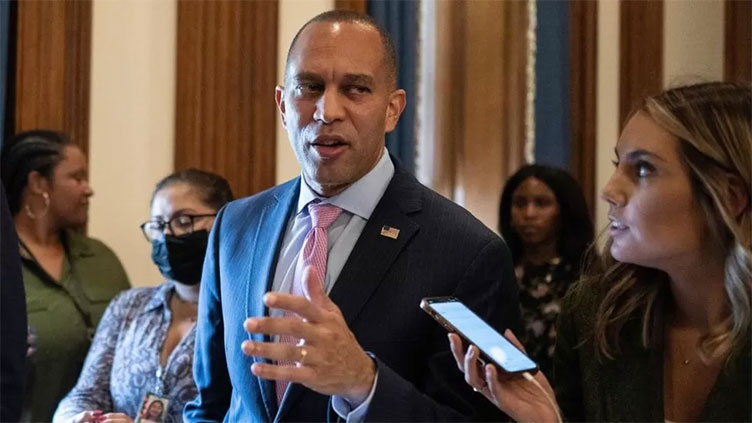US Congress poised to narrowly avert govt shutdown with just hours to go

World
In a dramatic turnaround, House Republicans scrambled to pass a temporary funding measure
(Web Desk) - With just hours to go before the US government is due to shut down, the House of Representatives has agreed to a short-term funding deal.
A bill that keeps the government funded until mid-November but includes no new aid for Ukraine was approved in the chamber by a vote of 335 to 91.
The measure has to be approved by the upper congressional chamber, the Senate, but is expected to pass.
Once signed into law, it will avert a disruption of federal services.
A shutdown, which would place tens of thousands of federal employees on furlough without pay and suspend various government services, was slated to begin at 00:01 ET (04:01 GMT) on Sunday.
But in a dramatic turnaround on Saturday afternoon, House Republicans scrambled to pass a temporary funding measure that would keep the government open for 45 more days and make no major concessions on spending levels.
It was backed by more Democrats than Republicans, with as many as 90 Republicans voting against it.
The move was a blow to a small group of right-wing Republicans who have held up negotiations in the chamber with unyielding demands for spending cuts.
However, with a majority of lawmakers keen to avert a shutdown, one of the faction's key demands - no more US funding for Ukraine's defence against its invasion by Russia - is reflected in the bill.
Shutdowns happen when both chambers of Congress are unable to agree on the roughly 30% of federal spending they must approve before the start of each fiscal year on 1 October.
With Republicans holding a slim majority in the House and Democrats holding the Senate by a single seat, any funding measure needs buy-in from both parties.
Repeated efforts to pass spending bills in the House have been thwarted in recent weeks by rebel right-wingers.
The group has opposed short-term spending measures and pushed for making cuts by passing long-term spending bills with agency-specific savings, even though such bills stand little chance of advancing through the Senate.
Speaker Kevin McCarthy had been extremely reluctant to rely on Democratic votes to pass the House's bill until the last minute, given this would anger these hard-line conservative members of his party.

